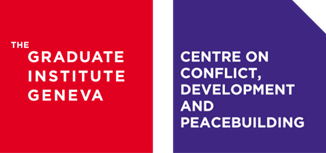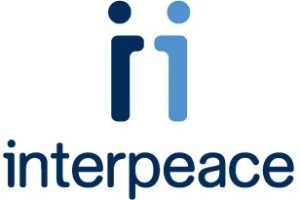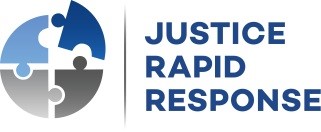Joint statement - The Maison de la Paix in support of the Sustainable Development Goals

In September 2015 world leaders adopted the Sustainable Development Goals (SDGs), forming the international development framework that will build on and complete the Millennium Development Goals. The seventeen goals and associated targets constitute the '2030 Agenda for Sustainable Development' that will shape global policy and action on sustainable development for the next 15 years.
The new framework is a universal agenda that recognizes peace and security as an integral part of sustainable development across all 17 global Goals (for example Goal 5 includes targets on ending violence against women and children). Moreover the global goals also emphasise that supporting peaceful and inclusive societies, access to justice, and accountable institutions under Goal 16 will catalyse improvements relevant to other specific targets under the goals of ending poverty (Goal 1), promoting sustained, inclusive and sustainable economic growth (Goal 8), and reducing inequality everywhere (Goal 10). The SDGs present a unique opportunity to create a continuum between development efforts and support to peaceful, inclusive and safe societies.
“There can be no sustainable development without peace and no peace without sustainable development” (A/RES/70/1 p.2)
In particular, the adoption of a global goal on peaceful and inclusive societies, access to justice, and accountable institutions reflects both the growing acceptance that such issues are key to the 2030 Agenda and the need to focus specifically on these issues in order to achieve the ambitious goal of fostering peaceful and inclusive societies. These targets are inextricably linked to other peace and security targets embedded in the rest of the SDG agenda.
The 12 targets under Goal 16 highlight reduction of violence, access to justice, effective and accountable institutions, inclusiveness and participation, the reduction of illicit arms trafficking, the fight against corruption and organised crime as essential dimension for development.
Whilst a state-led agenda, countries are not alone in this endeavour as the 2030 development framework calls for partnerships among states, civil society, the private sector and academia in order to reach the ambitious goals and targets of the SDGs. The SDGs represent an opportunity for these actors to join forces in supporting the United Nations and its member states towards the implementation of the 2030 agenda.
“Governments and public institutions will also work closely on implementation with regional and local authorities, subregional institutions, international institutions, academia, philanthropic organizations, volunteer groups and others” (A/RES/70/1 p.11).
In this regard bringing together countries, international organisations, civil society, and a broad community concerned with global issues, international Geneva is well situated to assist in this task. Within the Geneva landscape of specialists working for peace and security, the Maison de la Paix unites in one place an especially rich and diverse range of expertise and experience ready to support in the implementation of this bold new agenda.
The SDG Hub at the Maison de la Paix can be contacted through the following email address: SDGHub_MDP@smallarmssurvey.org
The Maison de la Paix: a hub for SDG implementation
The Maison de la Paix serves as a campus for the Graduate Institute of International and Development Studies and for the organizations listed below. It brings together considerable expertise relevant to the SDGs, especially regarding SDG Goal16.
 The Centre on Conflict, Development and Peacebuilding (CCDP) is the Graduate Institute’s focal point for conflict analysis, peacebuilding, and the complex relationships between security and development. While building its reputation around scholarly excellence and academic rigor, the CCDP also sets itself apart as a “hands on” establishment with a focus on providing effective inputs to policy and practitioner circles, together with a strong network of collaborators in both the global North and South. Current CCDP work streams are closely related to a number of SDGs, particularly Goals 8, 10, 11 and 16.
The Centre on Conflict, Development and Peacebuilding (CCDP) is the Graduate Institute’s focal point for conflict analysis, peacebuilding, and the complex relationships between security and development. While building its reputation around scholarly excellence and academic rigor, the CCDP also sets itself apart as a “hands on” establishment with a focus on providing effective inputs to policy and practitioner circles, together with a strong network of collaborators in both the global North and South. Current CCDP work streams are closely related to a number of SDGs, particularly Goals 8, 10, 11 and 16.
 The Geneva Centre for the Democratic Control of Armed Forces (DCAF) contributes to enhancing security sector governance (SSG) through security sector reform (SSR). The Centre’s work to support effective, efficient security sectors which are accountable to the state and its citizens is underpinned by the acknowledgement that security, development and the rule of law are essential preconditions for sustainable peace and inclusive societies. DCAF has a clear role to play in implementing the parts of the SDG agenda which emphasise qualities of good governance including accountability, inclusiveness, participation, rule of law and access to justice. These qualities make DCAF’s work essential in supporting the implementation of nine out of ten targets under Goal 16 as well as those goals and targets that seek to end violence against women and children (5.2 and 5.3) and to enhance the state’s capacity to guarantee safety within a framework of rule of law (Goal 11 as well as other specific targets).
The Geneva Centre for the Democratic Control of Armed Forces (DCAF) contributes to enhancing security sector governance (SSG) through security sector reform (SSR). The Centre’s work to support effective, efficient security sectors which are accountable to the state and its citizens is underpinned by the acknowledgement that security, development and the rule of law are essential preconditions for sustainable peace and inclusive societies. DCAF has a clear role to play in implementing the parts of the SDG agenda which emphasise qualities of good governance including accountability, inclusiveness, participation, rule of law and access to justice. These qualities make DCAF’s work essential in supporting the implementation of nine out of ten targets under Goal 16 as well as those goals and targets that seek to end violence against women and children (5.2 and 5.3) and to enhance the state’s capacity to guarantee safety within a framework of rule of law (Goal 11 as well as other specific targets).
![]() The Geneva Centre for Security Policy (GCSP) promotes peace, security and international cooperation by providing executive education opportunities (a mandate directly linked to SDG Goal 4 on education and target 4.7), by acting as a platform for dialogue and exchange, and by producing timely policy analysis. The GCSP is a sought-after partner for governments and organisations around the world seeking to understand the current international security environment and prepare for the changes to come. In that sense, the GCSP works comprehensively across the SDGs to support governments on the policy instruments required to navigate implementation and achieve the goals by 2030 (Goal 17); through our leadership, peacebuilding and crisis management initiatives we foster peaceful and inclusive societies and effective, accountable and inclusive institutions (Goal 16) – with a particular focus on gender equality (Goal 5); and, we equip course participants with the knowledge and skills to act on specific goals with potential security dimensions such as global health issues and climate change (Goals 3 and 13).
The Geneva Centre for Security Policy (GCSP) promotes peace, security and international cooperation by providing executive education opportunities (a mandate directly linked to SDG Goal 4 on education and target 4.7), by acting as a platform for dialogue and exchange, and by producing timely policy analysis. The GCSP is a sought-after partner for governments and organisations around the world seeking to understand the current international security environment and prepare for the changes to come. In that sense, the GCSP works comprehensively across the SDGs to support governments on the policy instruments required to navigate implementation and achieve the goals by 2030 (Goal 17); through our leadership, peacebuilding and crisis management initiatives we foster peaceful and inclusive societies and effective, accountable and inclusive institutions (Goal 16) – with a particular focus on gender equality (Goal 5); and, we equip course participants with the knowledge and skills to act on specific goals with potential security dimensions such as global health issues and climate change (Goals 3 and 13).
![]() The Geneva International Centre for Humanitarian Demining (GICHD) works to eliminate mines, cluster munitions and other explosive remnants of war, by supporting national authorities, international organisations and civil society in their efforts to improve the relevance and performance of mine action. The GICHD also works for mine action that is not delivered in isolation, but as part of a broader human security framework. As such, it is ideally placed to advise the mine action sector on its embedment into the Agenda for Sustainable Development. The GICHD also has a clear role to play in implementing SDG target 16.11 in relation to strengthened national institutions.
The Geneva International Centre for Humanitarian Demining (GICHD) works to eliminate mines, cluster munitions and other explosive remnants of war, by supporting national authorities, international organisations and civil society in their efforts to improve the relevance and performance of mine action. The GICHD also works for mine action that is not delivered in isolation, but as part of a broader human security framework. As such, it is ideally placed to advise the mine action sector on its embedment into the Agenda for Sustainable Development. The GICHD also has a clear role to play in implementing SDG target 16.11 in relation to strengthened national institutions.
Inter peace is an independent international peacebuilding organization. We work in over 21 countries in Central America, Africa, Europe, the Middle East and Asia. Interpeace believes that every society has what it needs to build peace. Our role is to support societies to harness their strengths. Together with local partners we help establish processes of change that connect local communities, civil society, government and the international community. Interpeace’s peacebuilding experience focused on enhancing inclusion, participation, local ownership, resilience and trust in both conflict- and violence-affected countries will be relevant for the implementation of SDG target 16.7, which calls for responsive, inclusive, participatory and representative decision-making at all levels, and for SDG target 16.a which aims to strengthen relevant national institutions to prevent violence and combat terrorism and crime.
peace is an independent international peacebuilding organization. We work in over 21 countries in Central America, Africa, Europe, the Middle East and Asia. Interpeace believes that every society has what it needs to build peace. Our role is to support societies to harness their strengths. Together with local partners we help establish processes of change that connect local communities, civil society, government and the international community. Interpeace’s peacebuilding experience focused on enhancing inclusion, participation, local ownership, resilience and trust in both conflict- and violence-affected countries will be relevant for the implementation of SDG target 16.7, which calls for responsive, inclusive, participatory and representative decision-making at all levels, and for SDG target 16.a which aims to strengthen relevant national institutions to prevent violence and combat terrorism and crime.
![]() The Inclusive Peace and Transition Initiative (IPTI) is the Graduate Institute’s new knowledge centre providing expertise and information to policymakers and practitioners, grounded on evidence-based research about inclusion and participation in peace and political transition processes. The IPTI’s expertise directly contributes to the SDG goals 5, 8, 10, 11, and 16 by supporting indicator development (i.e. global and country-specific indicators to qualitatively and quantitatively measure inclusion and participation); advising governments on inclusive policy design and implementation of relevant SDG activities; and enabling both governments civil society in setting up monitoring systems to assure meaningful participation.
The Inclusive Peace and Transition Initiative (IPTI) is the Graduate Institute’s new knowledge centre providing expertise and information to policymakers and practitioners, grounded on evidence-based research about inclusion and participation in peace and political transition processes. The IPTI’s expertise directly contributes to the SDG goals 5, 8, 10, 11, and 16 by supporting indicator development (i.e. global and country-specific indicators to qualitatively and quantitatively measure inclusion and participation); advising governments on inclusive policy design and implementation of relevant SDG activities; and enabling both governments civil society in setting up monitoring systems to assure meaningful participation.
 Justice Rapid Response (JRR) is a multi-stakeholder facility that recruits criminal justice, human rights and related professionals from around the world onto its Roster. JRR trains, certifies and rapidly deploys those professionals to ensure that mass atrocities and human rights violations can be investigated professionally, impartially and promptly. Its work provides a concrete tool and resource to supports the implementation of several SDG targets, especially SDG 16.3, promoting the rule of law nationally and internationally, and SDG 16.a, by supporting national institutions in achieving credible accountability for atrocities in their country.
Justice Rapid Response (JRR) is a multi-stakeholder facility that recruits criminal justice, human rights and related professionals from around the world onto its Roster. JRR trains, certifies and rapidly deploys those professionals to ensure that mass atrocities and human rights violations can be investigated professionally, impartially and promptly. Its work provides a concrete tool and resource to supports the implementation of several SDG targets, especially SDG 16.3, promoting the rule of law nationally and internationally, and SDG 16.a, by supporting national institutions in achieving credible accountability for atrocities in their country.
 The Small Arms Survey’s mandate is to generate evidence-based, impartial, and policy-relevant knowledge on all aspects of small arms and armed violence, and it has extensive experience and expertise in gathering information and monitoring policy initiatives in these areas. As such, it is ideally placed to measure and monitor progress of SDG target 16.4, which calls for significant reductions in illicit financial and arms flows, and SDG target 16.1, which aims to significantly reduce all forms of violence and related deaths as well as goal 5.
The Small Arms Survey’s mandate is to generate evidence-based, impartial, and policy-relevant knowledge on all aspects of small arms and armed violence, and it has extensive experience and expertise in gathering information and monitoring policy initiatives in these areas. As such, it is ideally placed to measure and monitor progress of SDG target 16.4, which calls for significant reductions in illicit financial and arms flows, and SDG target 16.1, which aims to significantly reduce all forms of violence and related deaths as well as goal 5.
